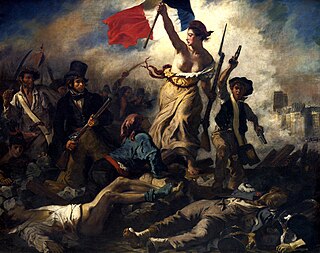
Romantic nationalism is the form of nationalism in which the state claims its political legitimacy as an organic consequence of the unity of those it governs. This includes such factors as language, race, ethnicity, culture, religion, and customs of the nation in its primal sense of those who were born within its culture. It can be applied to ethnic nationalism as well as civic nationalism. Romantic nationalism arose in reaction to dynastic or imperial hegemony, which assessed the legitimacy of the state from the top down, emanating from a monarch or other authority, which justified its existence. Such downward-radiating power might ultimately derive from a god or gods (see the divine right of kings and the Mandate of Heaven).

The sexual revolution, also known as the sexual liberation, was a social movement that challenged traditional codes of behavior related to sexuality and interpersonal relationships throughout the developed Western world from the 1960s to the 1970s. Sexual liberation included increased acceptance of sex outside of traditional heterosexual, monogamous relationships. The normalization of contraception and the pill, public nudity, pornography, premarital sex, homosexuality, masturbation, alternative forms of sexuality, and the legalization of abortion all followed.
Restoration is the act of restoring something to its original state. This may refer to:

The Cultural Revolution, formally known as the Great Proletarian Cultural Revolution, was a sociopolitical movement in the People's Republic of China (PRC). It was launched by Mao Zedong in 1966 and lasted until his death in 1976. Its stated goal was to preserve Chinese communism by purging remnants of capitalist and traditional elements from Chinese society. Though it failed to achieve its main objectives, the Cultural Revolution marked the effective return of Mao to the center of power. This came after a period of relative absence for Mao, who had been sidelined by the more moderate Seven Thousand Cadres Conference in the aftermath of the Great Leap Forward and the following Great Chinese Famine.

Maoism (毛主义), officially called Mao Zedong Thought (毛泽东思想) by the Chinese Communist Party (CCP), is a variety of Marxism–Leninism that Mao Zedong developed to realize a socialist revolution in the agricultural, pre-industrial society of the Republic of China and later the People's Republic of China. The philosophical difference between Maoism and traditional Marxism–Leninism is that a united front of progressive forces in class society would lead the revolutionary vanguard in pre-industrial societies rather than communist revolutionaries alone. This theory, in which revolutionary praxis is primary and ideological orthodoxy is secondary, represents urban Marxism–Leninism adapted to pre-industrial China. Later theoreticians expanded on the idea that Mao had adapted Marxism–Leninism to Chinese conditions, arguing that he had in fact updated it fundamentally and that Maoism could be applied universally throughout the world. This ideology is often referred to as Marxism–Leninism–Maoism to distinguish it from the original ideas of Mao.
"The East Is Red" is a Chinese Communist Party revolutionary song that was the de facto national anthem of the People's Republic of China during the Cultural Revolution in the 1960s. The lyrics of the song were attributed to Li Youyuan (李有源), a farmer from Shaanbei, and the melody was derived from a local peasant love song from the Loess Plateau entitled "Bai Ma Diao" 《白马调》, also known as "Zhima You" 《芝麻油》, which was widely circulated in the area around Yan'an in the 1930s. The farmer allegedly got his inspiration upon seeing the rising sun in the morning of a sunny day.
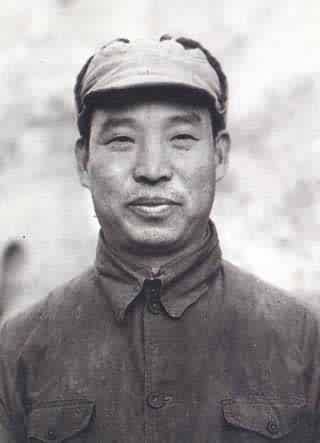
Peng Zhen was a leading member of the Chinese Communist Party. He led the party organization in Beijing following the victory of the Communists in the Chinese Civil War in 1949, but was purged during the Cultural Revolution for opposing Mao's views on the role of literature in relation to the state. He was rehabilitated under Deng Xiaoping in 1982 along with other 'wrongly accused' officials, and became the inaugural head of the Central Political and Legal Affairs Commission.
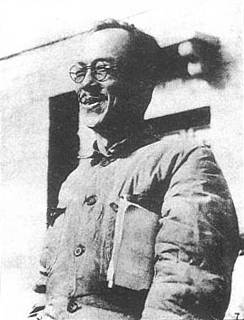
Kang Sheng was a Chinese Communist Party (CCP) official, best known for having overseen the work of the CCP's internal security and intelligence apparatus during the early 1940s and again at the height of the Cultural Revolution in the late 1960s and early 1970s. A member of the CCP from the early 1920s, he spent time in Moscow during the early 1930s, where he learned the methods of the Soviet NKVD and became a supporter of Wang Ming for leadership of the CCP. After returning to China in the late 1930s, Kang Sheng switched his allegiance to Mao Zedong and became a close associate of Mao during the Second Sino-Japanese War, the Chinese Civil War, and after. He remained at or near the pinnacle of power in the People's Republic of China from its establishment in 1949 until his death in 1975. After the death of Mao and the subsequent arrest of the Gang of Four, Kang Sheng was accused of sharing responsibility with the Gang for the excesses of the Cultural Revolution and in 1980 he was expelled posthumously from the CCP.

The Red Guards were a mass, student-led, paramilitary social movement mobilized by Chairman Mao Zedong in 1966 until their abolishment in 1968, during the first phase of the Cultural Revolution, which he had instituted.
Hai Rui Dismissed from Office (Chinese: 海瑞罢官; pinyin: Hǎi Ruì bà guān; Wade–Giles: Hai3 Jui4 Pa4-kuan1) is a theatre play, written by Wu Han (1909-1969), notable for its involvement in Chinese politics during the Cultural Revolution. The play itself focused on a loyal Ming Dynasty minister named Hai Rui, who was portrayed as a savior to passive peasants for whom he reversed unjust land confiscations. The play became a center of scholarly and political controversy because of its implications for debates within the communist party, including at the Lushan Conference, regarding the political role of peasants going forward in light of the failures during the Great Leap Forward.
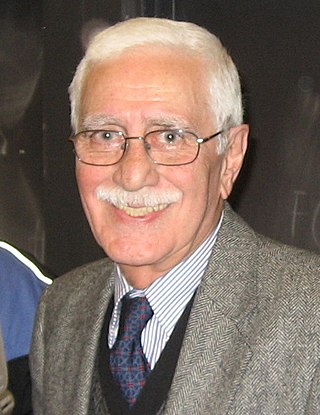
Iraj Pezeshkzad was an Iranian writer and author of the famous Persian novel Dā'i Jān Napoleon published in the early 1970s.
The Cultural Revolution was a period following the Iranian Revolution, when the academia of Iran was purged of Western and non-Islamic influences, to align them with the revolutionary and political Islam. The cultural revolution sometimes involved violence in taking over the university campuses, as higher education in Iran had many secularist and leftist forces who were opposed to Ayatollah Khomeini's Islamic state in Iran. The official name used by the Islamic Republic is "Cultural Revolution".

Revolution in the Head: The Beatles' Records and the Sixties is a book by British music critic and author Ian MacDonald, discussing the music of the Beatles and the band's relationship to the social and cultural changes of the 1960s. The first edition was published in 1994, with revised editions appearing in 1997 and 2005, the latter following MacDonald's death in 2003.
The Central Case Examination Group was a special organization established in the People's Republic of China in 1966 under the aegis of the Politburo Standing Committee of the Chinese Communist Party to persecute those accused of "anti-party activities". It was, in essence, an organization dedicated to political persecution of senior party leaders as well as ordinary functionaries. Initially conceptualized as a beachhead by Chairman Mao Zedong's most radical supporters to 'gather dirt' on opponents of the Cultural Revolution, it later began taking up cases against all manner of perceived political opponents irrespective of their ideological allegiance. Many of its early leaders, such as Jiang Qing, later themselves became the subject of persecution by the Group. The Group was compared by Cultural Revolution-era propagandist Wang Li to the Soviet Cheka, but he noted that the CCEG had even broader powers. Its leading members included nearly all of the members of the Cultural Revolution Group (CRG) as well as Premier Zhou Enlai and the chief of Mao's security detail Wang Dongxing. The CCEG worked closely with the CRG during its investigations.

Tan Zhenlin was a political commissar in the People's Liberation Army during the Chinese Civil War, and a politician after the establishment of the People's Republic of China.
In People's Republic of China (1949–), revolutionary operas or model operas were a series of shows planned and engineered during the Cultural Revolution (1966–1976) by Jiang Qing, the wife of Chairman Mao Zedong. They were considered revolutionary and modern in terms of thematic and musical features when compared with traditional Chinese operas. Many of them were adapted to film.
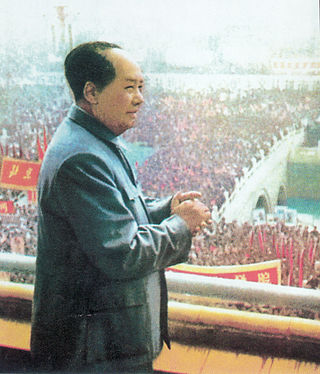
Mao Zedong's cult of personality was a prominent part of Chairman Mao Zedong's rule over the People's Republic of China from the state's founding in 1949 until his death in 1976. Mass media, propaganda and a series of other techniques were used by the state to elevate Mao Zedong's status to that of an infallible heroic leader, who could stand up against the West, and guide China to become a beacon of communism.

The seizure of power, or power-seizure movement during the Cultural Revolution was a series of events led by the "rebel groups", attempting to grab power from the local governments in China and local branches of the Chinese Communist Party (CCP). The seizure of power began in the "January Storm" of Shanghai in 1967, and rapidly spread to other areas of China. The power seizure usually culminated in the establishment of local revolutionary committees, which replaced the original governments as well as communist party branches, and wielded enormous power that often caused much chaos in Chinese society.
The bloodline theory (Chinese:血統論) or blood lineage theory was a political theory associated with the "Loyalist Faction" of the Red Guards during the early phase of the Cultural Revolution in the People's Republic of China. Opponents included the "Rebel Faction" of the Red Guards.
Scarlet Guard organizations were political organizations formed during the Cultural Revolution in China to oppose the more radical Red Guards.











